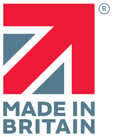
A great deal has changed around manufacturing intelligence in recent years. With issues surrounding process manufacturing growing increasingly complex, and new technologies emerging and evolving to tackle these growing challenges, it is now essential that we possess the requisite knowledge to comprehend and implement cost control during the manufacturing process and utilise these new methods effectively. Businesses are finding themselves under increasing pressure to supply more rapid introductions of products and to adapt to different markets - while continuing to improve efficiency, maintain quality and lower costs.
The result of this is an unprecedented need among manufacturers to have full control over their production process and have exceptional visibility. The availability and clear visibility of information or business intelligence can lead to and support better decisions. The need to get 'smarter' is essentially a quest to gain maximum visibility.
Here are six ways you can control process manufacturing costs using intelligence solutions:
Process optimisation
It is vital that you consider all your processes together. Focus on the actual process, as opposed to your product and product-related costs. Note down the details of your current process as this will ensure you have visibility of the whole system, rather than separate parts. It will help avoid partial process optimisation and the improvement of one aspect of the process at the expense of another.
Workforce optimisation
Take a demand vs. capacity-utilisation approach where production decisions are concerned. Businesses using this approach will be able to balance their demand requirements, workforce availability and optimise their labour costs. Making any switch to a new approach can take a lot of planning, time and persistent, but it can prove to be beneficial in the long term as it will reduce the amount spent over time, production bottlenecks and can produce major savings.
Energy consumption
Energy is the main element where costs are concerned. If not first on the list, it tends to come in a close second. Ensure you make demand-driven decisions, which will enable your business to run slower, save energy and do so without the need to sacrifice output or customer service. Accurate visibility of your operating conditions in real-time is crucial.
Maintaining quality
Product quality issues can be costly. Investing in a business system that can manage all warehousing, manufacturing process, quality and customer service needs will provide you with quality business intelligence. Better intelligence can lead to improved root cause analysis and the accurate monitoring of product defect levels. The data gathered can also highlight issues and weaknesses within processes. Therefore, an integrated system will allow proactive management of quality throughout the whole manufacturing firm.
Lower the cost of compliance
The more real-time visibility and improved quality you have, the less likely you are to run into issues with compliance. By anticipating problems before they occur and avoiding them, and keeping quality at its peak, you can save a considerable amount of time and energy where regulatory compliance is concerned.
Inventory carrying costs
Inventory storage is a cost and can be very costly if there's too much of it and if it's stored for long periods of time, so it is vital for manufacturers to factor storage in as a
cost. A responsive and nimble manufacturing operation will help avoid overproduction and minimise storage requirements. Calibrate your production activities with your customer demand, which will ensure sufficient stock levels and avoid having excessive stock that you cannot shift.
By assessing and reassessing these six elements of your manufacturing process on a regular basis, you will be able to build a strong foundation that ensures cost-effective manufacturing excellence. Manufacturing ERP is the perfect way for manufacturers to deploy these essential control methods.
For more information on what ERP can do for your business, get in touch with us at WinMan.





.png?width=137&height=137&name=MicrosoftTeams-image%20(4).png)